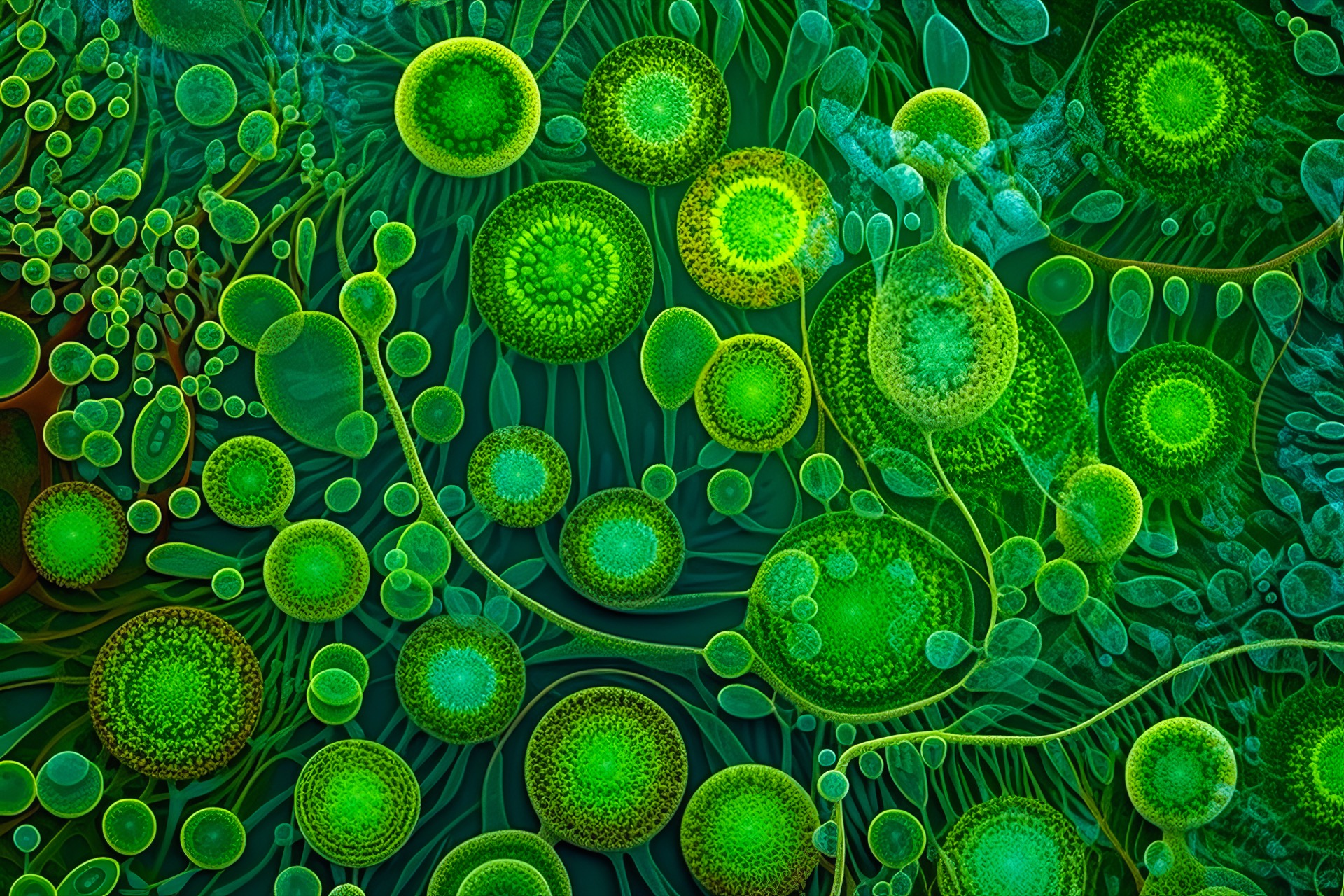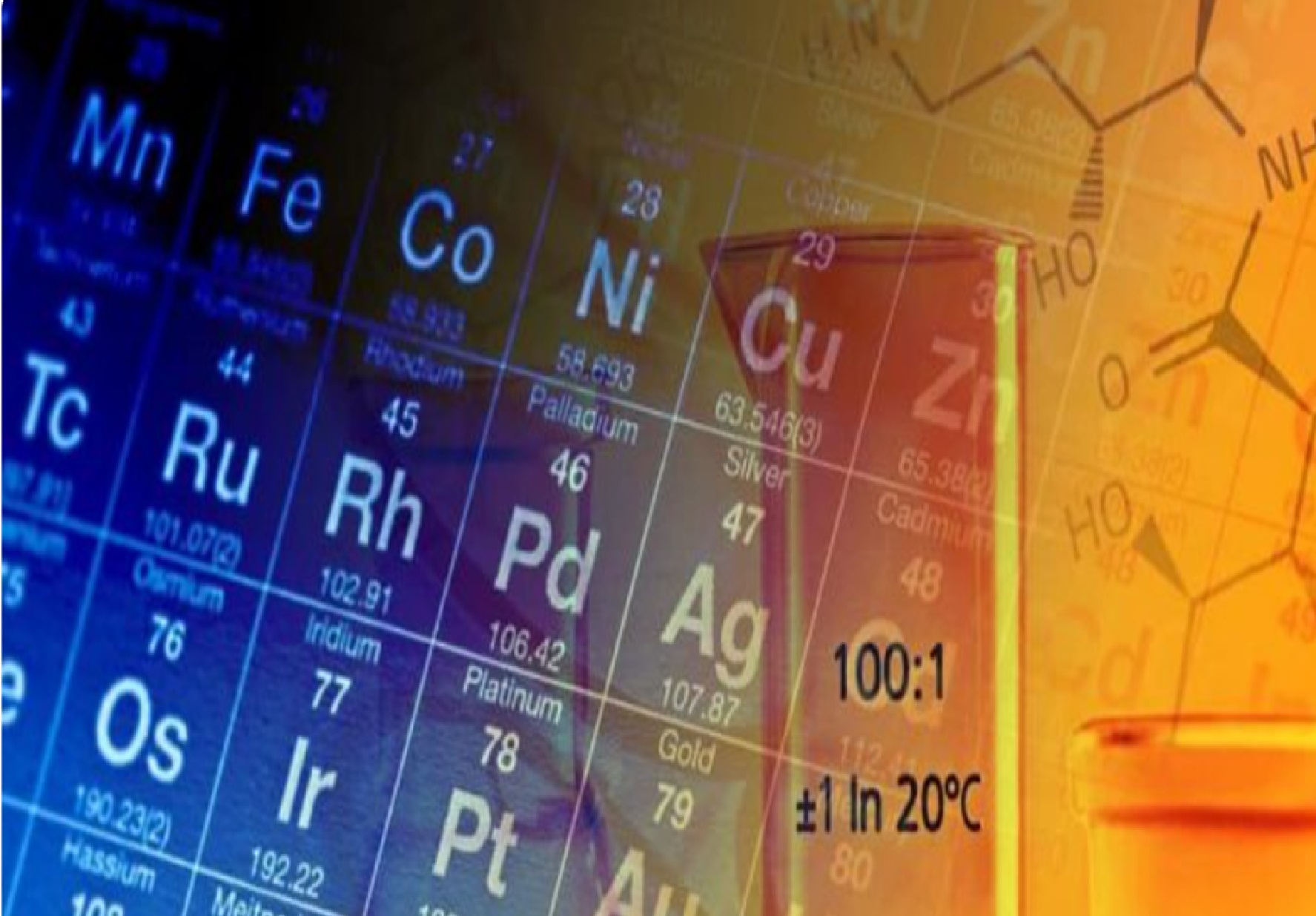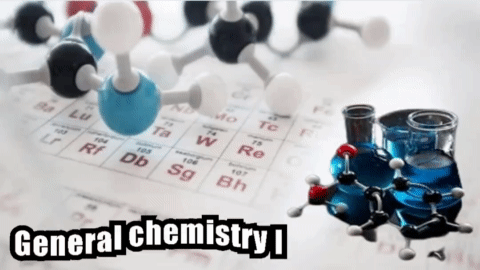Licence 1 Sciences de la Nature et de la Vie
Ce cours est destiné aux étudiants du socle ccommun de la licence des Sciences de la nature et de la vie (L1 SNV).
Il traite les notions de base en biologie végétale.
Pour introduire le cours, les premières notions sur la systematique du règne vegétal est abordée pour situer les plantes supérieures à savoir les angiospermes et les gymnospermes.
Les particularités de la cellule végétale par rapport à la cellule animale sont ensuite passées en revue pour expliquer la physiogie du végvétal .
L'étude des plantes supérieures ou la biologie végétale générale est sindée en deux grands chapitres:
-La morphologie des organes végétatifs et reproducteurs chez les angiospermes .
-L'histologie et l'anatomie des tiges, racines et feuilles chez les angiospermes.

- Enseignant: Amina Kadiri
General Chemistry is a course designed for first-year students in natural and life sciences program, to give them a solid understanding of the fundamental aspects of chemistry, including matter, atomic structure, the periodic relationships of the elements and chemical bonding.
A good understanding of the fundamental principles of chemistry is essential to facilitate the chemical understanding of phenomena not only in biology but also in other disciplines such as medical science, physics and geology. The aim of this course is to relate the fundamental concepts of general chemistry to the world around us, and to illustrate how chemistry explains many aspects of everyday life.

- Dr: Wassila ABOURA
General chemistry (I) is a first-semester of a two-semester sequence general chemistry course, often taught at introductory university level for first-year students in natural and life sciences program and are intended to serve as a broad introduction to a variety of core concepts in chemistry. As such, this course provides an important opportunity for students to understand how those concepts apply to their lives and the world around them. It is a complement to the other courses because it serves to facilitate the chemical understanding of biological phenomena. In this course, we study the main topics in General Chemistry (I), beginning with atomic structure, then progressing to the electronic configuration of atoms, the periodic table and chemical bonds.
"I want everyone to succeed in this class. Success is a matter of practice , not just listening to lecture; Lectures Provide the Foundation, but Practice Cements the Learning"

- Dr: salima bouteraa
Techniques de Conservation des Produits Aquatiques
- Enseignant: Ahlem Amina Taleb Bendiab
Organic chemistry was originally the chemistry of the molecules of the living world. Today it is known as the chemistry of carbon and its natural or synthetic derivatives.
This chemistry is omnipresent in our daily lives, and can be found in plastics, fuels, medicines, perfumes, cosmetics, food, etc.

- Enseignant: faiza bettahar
il s'agit d'une unité d’enseignement dont le but est d’expliquer les différents éléments et processus de communication parlée, écrite et préverbale par rapport au domaine du vivant et de la biologie, ce cours est destinée aux étudiants du L1 SNV pour former un esprit de synthèse et communicatif d’une manière efficace et scientifique.
- Enseignant: Djilali Bouras
il s'agit de comprendre les différents régimes de production des connaissances dans le domaine de la biologie au cours du temps. Penser la science dans ses relations avec les différents acteurs de la société.
le support du cours est diffusée en deux versions, une est en français et en deuxième en anglais
- Enseignant: Djilali Bouras
YOUR ARE LEARNING IN THE LABORATORY:
- HOW TO USE THE LIGHT MICROSCOPE???
- HOW TO MAKE A TEMPORARY STAINING PREPARATION????? TO VIEW TWO (2) DIFFERENT CELLS BY THE LIGHT MICROSCOPE AT DIFFERENT MAGNIFICATIONS:
2-1- Animal cells staining by the methylene blue - 2-2- Plant cells staining by the neutral red
- Enseignant: Nawal Dida
- WHAT ARE THE MAIN COMPONENTS OF THE LIGHT (OPTICAL ) MICROSCOPE????
- HOW PREPARING "WET MOUNTS" SLIDES????
- HOW PREPARING "PERMANENT FIXED" SPECIMEN???
- Enseignant: Nawal Dida
On completion of this course, students will be able to understand the basic principles, laws and theories of general chemistry; explain the chemical behaviour of the most common elements and compounds, so as to be able to predict the products of the main chemical reactions that they are likely to encounter in their subsequent studies and in everyday life; and improve their problem-solving skills. In addition, they will have acquired an important addition to their general education. Stoichiometry: gas law, concept of the mole, limiting reagent, yield. Structure of the atom: electronic configuration, degree of oxidation. Chemical compounds: nomenclature, classes of compounds. Chemical reactions: acid-base, precipitation, substitution, redox; covalent bonding: hybridisation, three-dimensional form, polarity. Intermolecular attractions: Van der Waals forces, hydrogen bridge, physical properties. Laboratory sessions are planned and compulsory. This course cannot contribute to a training programme.

- Enseignant: faiza bettahar
Eukaryotic cells (your essential learning-study in cell biology, this semester) have a more complex structure. Organelles allow for various functions to occur in the cell. Before discussing the functions of organelles within an eukaryotic cell, we must first examine one important components of the cell: THE PLASMA MEMBRANE (or CELL MEMBRANE) wich is found in all cells that separates the interior of the cell from the outside environment.
- Enseignant: Nawal Dida
Ce module s'adresse aux étudiants en deuxième année de formation d'ingénieur (sciences agronomiques).


- Enseignant: Meriem Mekedem

- Enseignant: nadjat guettari
- Enseignant: Asma El Zerey-Belaskri


